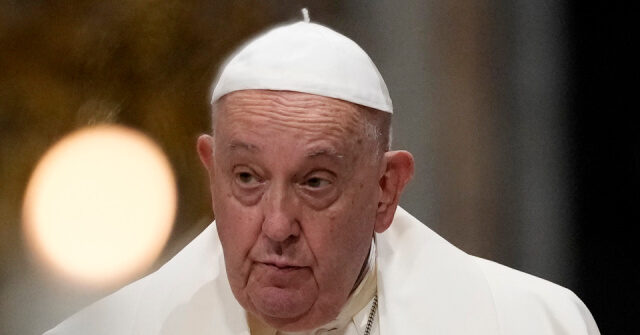Conservative Bishop Joseph Strickland, recently removed from his Texas diocese by Pope Francis, has publicly called out his fellow U.S. bishops for their perceived inaction regarding what he terms “false messages” emanating from the Vatican. This critique was articulated in an open letter during the 2024 fall plenary assembly of the U.S. Conference of Catholic Bishops (USCCB) in Baltimore. Strickland expressed his disappointment at the bishops’ silence while significant events like the Synod on Synodality unfolded, which he believes undermines the integrity of the Catholic faith. He characterizes these moments as pivotal opportunities for bishops to defend the core tenets of the faith but feels they have failed to take a stand against what he views as the erosion of traditional Catholic teachings.
In his letter, Strickland accuses Pope Francis of neglecting his role as the primary protector of the Deposit of Faith, suggesting that the pope’s approaches reflect a relativized understanding of truth. He contends that, under Francis’s stewardship, the Church has deviated from foundational doctrines, citing the pope’s assertions about the divine will encompassing all religions. According to Strickland, such statements not only misrepresent the Catholic faith but also create confusion about its core beliefs. He argues that the very essence of the faith is at stake and that bishops and cardinals must publicly acknowledge this deviation from orthodox Catholic teaching.
Strickland emphasizes the urgency of his call to action by framing his efforts as a necessary rebellion against a vacuum of leadership among his peers. He portrays himself as a voice of dissent against larger, destructive trends within the Church, openly lamenting what he perceives as the complacency of other bishops. He believes that many of them possess the intellectual and spiritual capabilities needed to oppose these trends but have chosen silence instead, which he views as complicity or fear in challenging the prevailing narratives emerging from the Vatican.
The bishop’s statements reflect a broader discontent within certain factions of the Church regarding the direction Pope Francis has taken. His criticisms resonate with like-minded individuals who share the sentiment that the current pontiff represents a significant shift away from traditional Catholicism. By labeling other bishops as “silent shepherds,” Strickland suggests that their reticent demeanor undermines the collective responsibility of Church leaders to defend the faith. He warns of the dangers posed by a leadership that fails to confront what he deems theological errors, asserting that silence in the face of such challenges equates to enabling them.
Strickland views his outspoken nature as a form of pastoral duty, one borne from a sense of obligation to protect what he sees as the true teachings of the Church. His letter calls on bishops to boldly affirm their commitment to the faith and challenge any attempts that could lead to its dismantling. He invokes the notion that every member of the clergy, particularly those in positions of influence, has an essential role in safeguarding the tenets of the Church against any perceived heresy or deviation.
The situation highlights the tensions within the Catholic Church under Pope Francis’s leadership and the challenges that arise when differing visions of Church doctrine and practice collide. Strickland’s letter serves as a rallying cry for those who feel marginalized within the current ecclesiastical climate, amplifying fears of losing the Church’s traditional identity. As the debate continues, the future of the Church’s teachings and the role of its leaders remain in focus, with figures like Strickland pushing against modern interpretations that they believe distort the fundamental truths of the faith.

